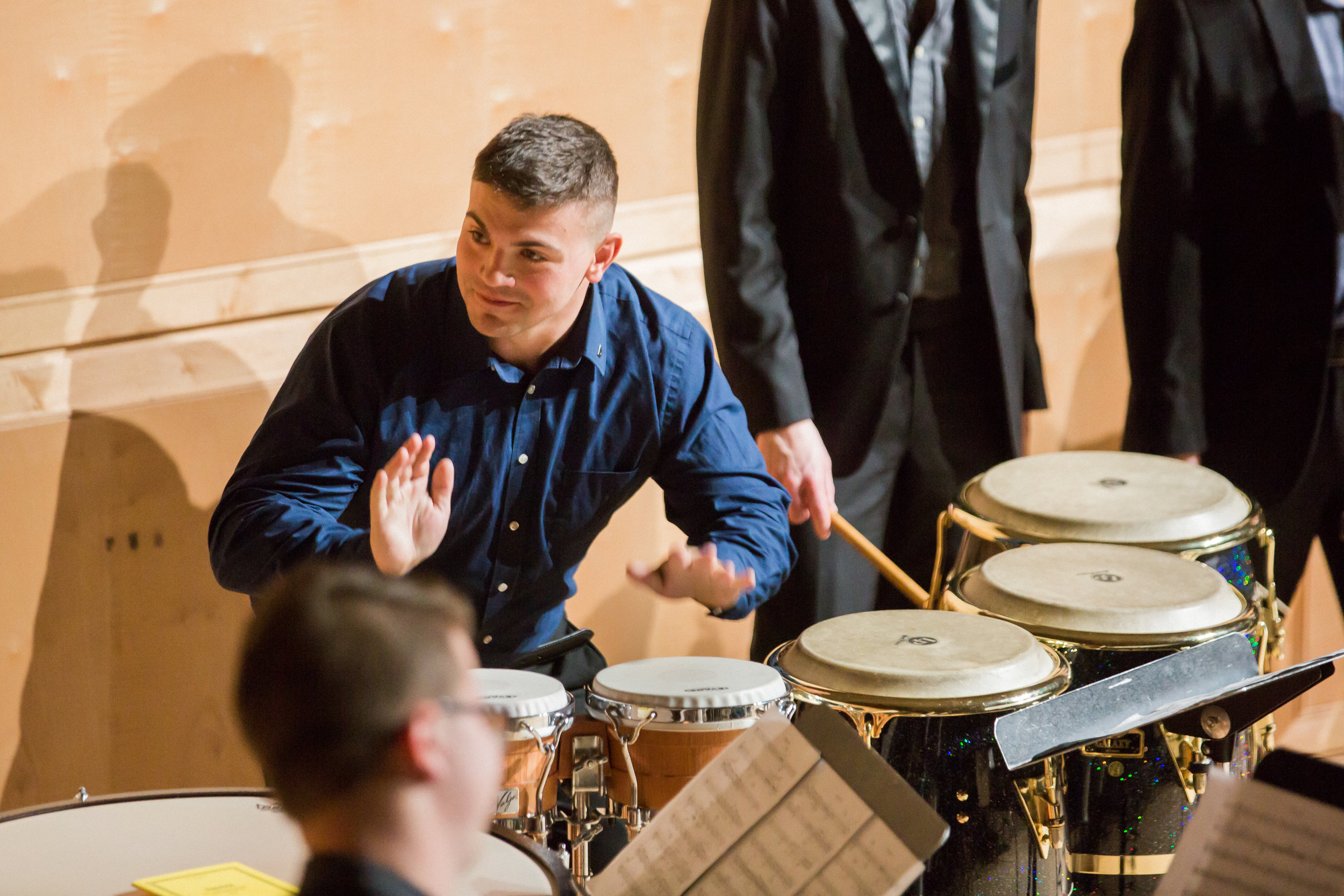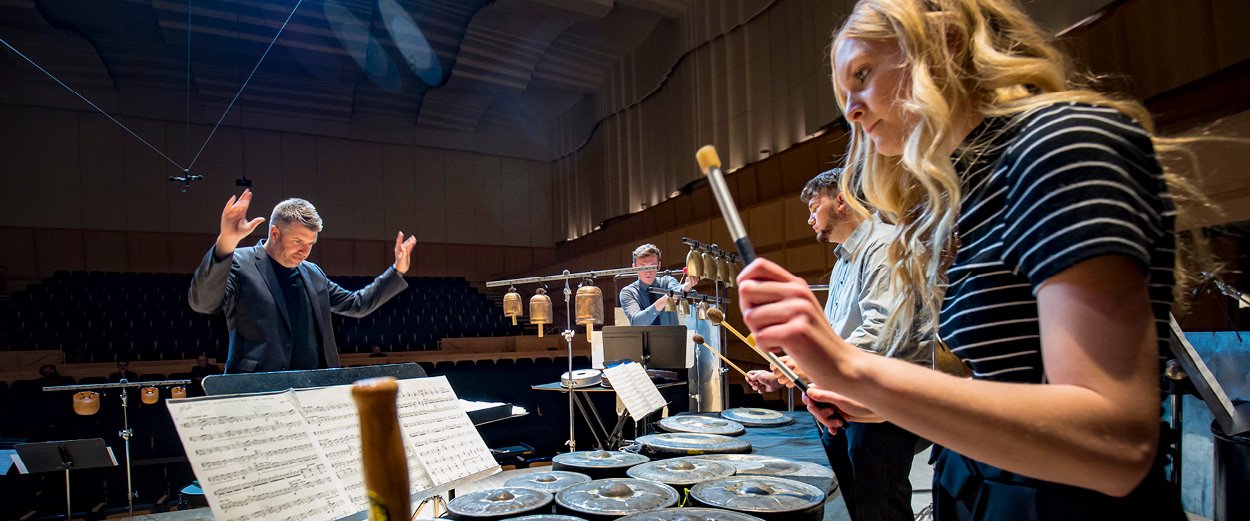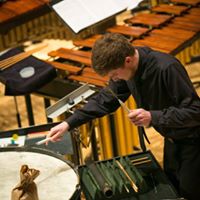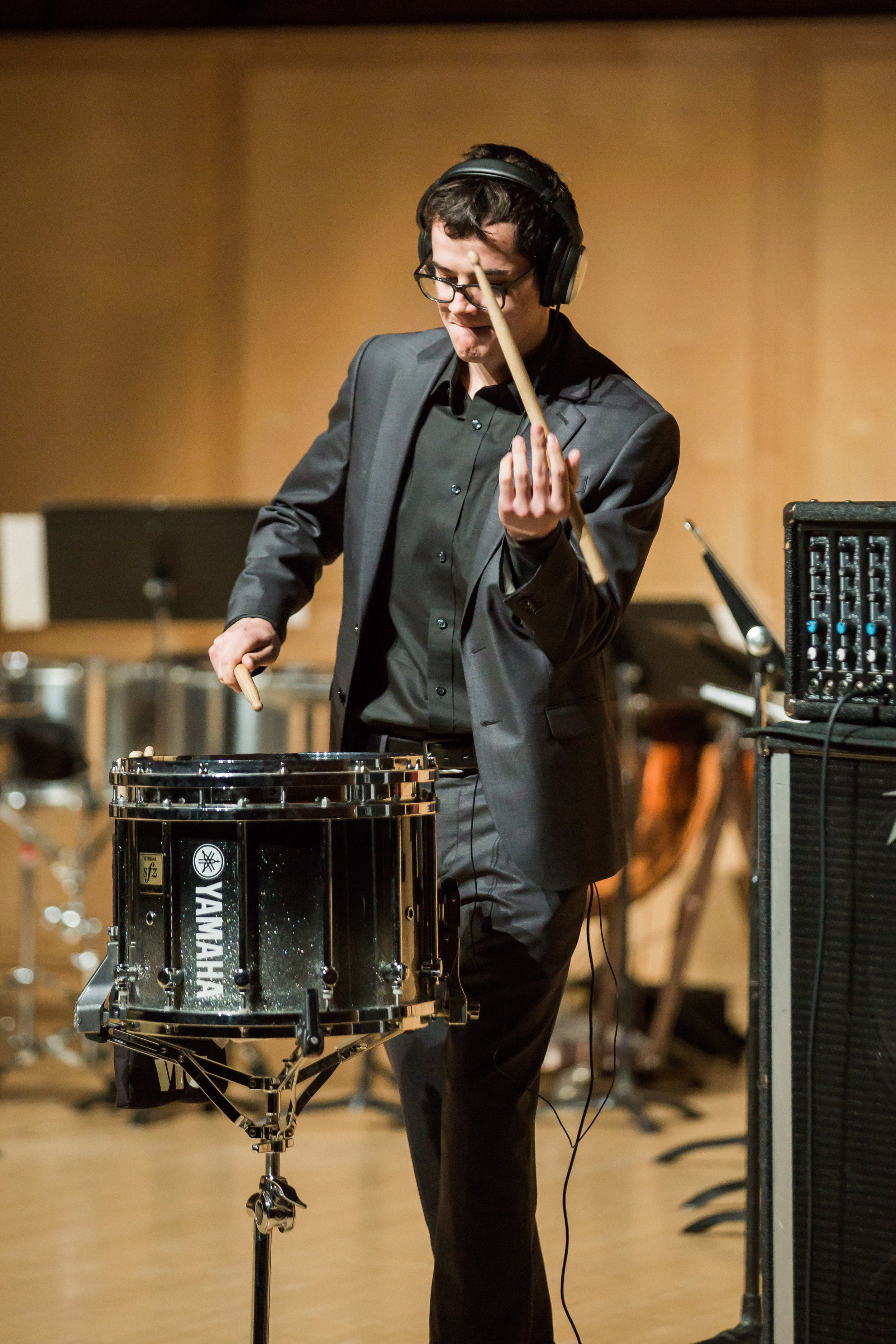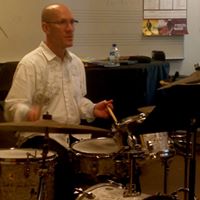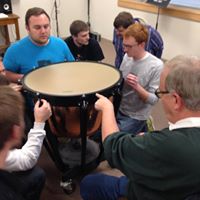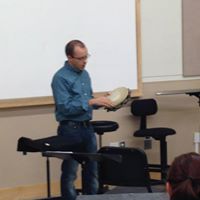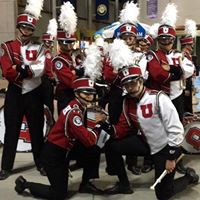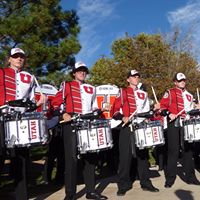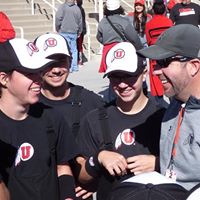FREQUENTLY ASKED QUESTIONS
What are some reasons why UTAH PERCUSSION stands out from other universities and percussion programs?
BEYOND the website information and resources:
Diversity and quality of applied faculty (Carrick, Soulier, Wallis and Aeschbacher). We are all working professionals in a variety of settings on a national / international level.
I am a working musician in a variety of settings (classical, theater, chamber, recording, non-western, rudimental, etc...) and live my lessons and find new ones every day.
Extremely high graduate placement in a variety of careers : Air Force Band of the West, US Army Hellcats, Principal Timpanist - Ballet West, graduate schools (NEC, Carnegie Mellon, TCU, FSU-ethnomusicology), Sub – Utah Symphony, HS percussion specialist, public school music educators, freelance teaching and performing, audio engineer / studio work and arts administration (Houston Symphony)
I involve all of my students and especially graduate teaching assistants in the direction of the program from programming repertoire (including student compositions) to creative, artistic projects as you can see in our media section. I feel this is vital to their professional field work.
No two students are exactly alike - see career placements above. Students have ownership over their own curriculum and studies with guidance and capstone projects along the way. I champion students in discovering and developing their own artistic voice while also providing a comprehensive percussion experience as a platform for individual interest and career aspirations.
How many students are in the percussion studio? How many are undergraduates and graduates? I keep the studio anywhere between 17-22 with 1-2 graduate students typically. This ensures that the studio is large enough to draw talent but intimate enough so that the studio has a close, tight-knit I dare say family, style feel. It is imperative to be around a lot of other great players but also a collaborative environment. From a faculty – studio member relationship, I always want a hands-on, one-on-one relationship with members of the studio. Even if students are studying a particular semester with another faculty member (also a big plus and draw to the U!), I want my door to always be open to all students at all times. It is common for me to give lessons with students even if they are not enrolled officially in lessons with me that semester.
What is the purpose of the percussion studio class? Lectures, student performances, guest artists, special projects, etc...
What kind of repertoire does the percussion ensemble focus on? YES! Funny way of saying all. We have also done compositions and/or arrangements by students within the studio. Our Evening of Percussion is also programmed by members of the studio – super fun and creative. We also have a the Utah Percussion Group, a full time group focused on a chamber percussion experience commissioning new works, creating recording projects, and performance at festivals including Percussive Arts International Convention (PASIC), Northwest Percussion Festival, among others including international opportunities.
Do you have to be a music major to be in the percussion ensemble? No. The group has members from across campus. The ensemble is auditioned every semester on the first day of classes. Audition material goes out in December and May respectively for the next semester’s audition. Email mike.sammons@utah.edu to receive that information.
Is the audition repertoire on the website for the upcoming auditions Yes - https://www.mikesammons.com/auditions
Video auditions: In-person auditions are strongly recommended especially for scholarship consideration. If you're applying to the undergraduate program and cannot attend an audition in-person due to distance, you may submit an audition video. See guidelines here: https://music.utah.edu/students/admissions-scholarships.php#auditions
Scholarships: Scholarships are based on merit determined by audition results. You don't have to be a music major to be on the drumline nor get a scholarship from the drumline. If you are a music major, then you do have access to School of Music / Percussion Studio scholarships (again, merit based) and of course, the U's academic scholarships. For graduate students, the Graduate Teaching Assistantship information is here: https://www.mikesammons.com/auditions.
